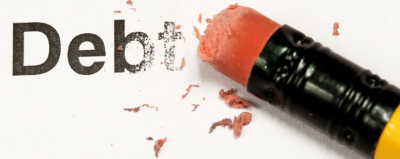Passing along the following excerpt from an article at USA Today.
One of the first things we establish for any financial or retirement plan is a net worth statement, or your assets and liabilities. This gives us a great picture of what you have to work with now to obtain your goals. It’s especially important for those close to retirement because pretty soon you’ll more than likely be “subtracting” from what you have to generate income, rather than adding to it through your work earnings. Logically, the more you have on the liabilities side of the balance sheet, the less actual net worth you have to pull from….
———————————–
A massive debt load can bring anyone down, but for those who are in or near retirement, owing money is far more stressful. While younger borrowers have decades to earn income and pay down their debt, those edging closer to retirement don’t have much time to compensate for their financial setbacks. And for those who are already in retirement, high levels of debt can be catastrophic.
Because retirees live off a fixed income, they have less wiggle room in their budgets for making loan payments. People who enter retirement with a large debt pile run the risk of never paying it off in their lifetime. In fact, according to the Employee Benefit Research Institute, as of 2010, U.S. households with the highest levels of debt were those for whom the heads of household were aged 55 to 64. Those households carried an average debt load of a staggering $107,000. And at a time in life when other medical problems have a way of creeping up, the last thing retirees need is debt-related stress wreaking havoc on their health. This is why it’s especially important that retirees or near-retirees take steps to reduce or eliminate debt while they still can.
Get rid of that credit card balance
Credit card debt is just about the worst kind to have, as it generally comes with the highest interest rates. Before paying down any other type of debt, work on paying off that credit card, because even a small balance can wind up costing you a lot more than you’d expect over time.Say you enter retirement with a $3,000 balance on your credit card at a 12% interest rate. If it takes you three years to pay it off, you’ll wind up spending over $5,500, which is almost double the initial principal. Now imagine you start off with $10,000 in credit card debt. At 12% interest over three years, you’ll spend almost $18,500 paying it off. At a time in your life when your income is limited, the last thing you want to do is throw money away on interest charges.
Eliminate student debt
As of 2013, the average retiree with student debt carried an outstanding student loan balance of $2,300. Getting rid of student debt is another way to secure a more comfortable, stress-free retirement. A balance of $2,300 at 5% interest can wind up costing an extra $750 if paid off over the course of three years. Plus you have the hassle of making payments to deal with, not to mention the mental burden of knowing that another party has a right to a portion of your (limited) paycheck. You’re better off taking steps to pay off that loan ASAP, even if it means delaying retirement for a year or taking on a bit of side work to make it go away.Pay off your mortgage
Paying off your mortgage can save you thousands of dollars in interest charges — money you could really use when you’re no longer a member of the workforce. Say you have $30,000 and five years left on your mortgage, and your loan has a 6% interest rate. If you pay your mortgage as scheduled, you’ll spend close to $5,000 in interest. On the other hand, if you manage to pay an additional $300 per month, you’ll knock off about $2,000 in total interest charges.Retirement represents a major change in your life, and for some people, it can be a tough mental adjustment. Entering retirement weighed down by debt will only make an already trying situation worse. While it might require some extra work and a hefty dose of discipline, you’re better off taking steps to reduce or knock out your debt before bringing your career to a close. That way, you can kick off your retirement with a clear head and focus on navigating your new life, whatever it may look like.
